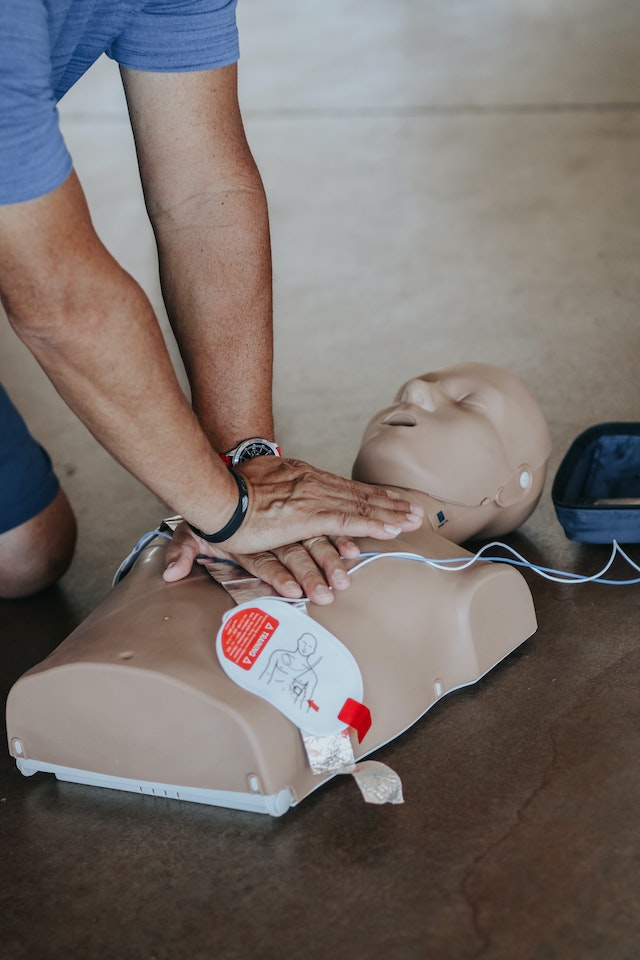CPR is a life-saving method used in cardiac emergencies, such as when a person is in cardiac arrest. If patients receive CPR, their chances of survival improve considerably. Unfortunately, many people are not trained in CPR.
CPR is a tried-and-true life-saving procedure. It entails chest compressions which encourage blood to flow so it can access organs such as the brain and keep the patient alive. This can be used with ventilation to ensure the blood is oxygenated appropriately.
If you have never gotten CPR training or your CPR certification has expired, you should sign up for CPR training classes!
5 Reasons Why You Should Sign Up for a CPR Class
- CPR Protects Against Brain Death
During a heart attack, the heart seizes and can’t pump blood to vital organs such as the brain and the rest of the body. The person becomes unconscious due to reduced blood supply to the brain. The brain can suffer damage without sufficient blood flow which can be irreparable in some cases.
CPR helps to keep blood circulation active and may assist in lessening the victim’s injuries. CPR preserves the individual’s brain function following cardiac arrest, improving the likelihood of keeping their blood flowing and alive.
- CPR Helps Save Lives
Cardiac arrest affects people of different ages and health conditions. Unfortunately, it is prevalent. There’s a significant possibility you’ll need CPR to save someone’s life—unfortunately, the majority of the patients with cardiac arrest die without even reaching the hospital.
CPR can significantly reduce that number and enhance a person’s chances of survival when conducted properly and swiftly. Despite its significance, many people do not have CPR training or certification, and those who possess it may not always act on it. You can’t rely on anybody else, and you must be capable of performing CPR yourself. Nowadays with the help of the internet, you can easily get a CPR certification online as well.
- It is Empowering
You want to be prepared if someone you know or even a stranger needs to be administered CPR over a routine day. Following CPR training, you will be confident in conducting the necessary measures to save someone’s life. You can remain cool and helpful instead of being upset and terrified when someone close to you has a heart attack.
Knowing CPR implies that you can help others wherever you go. This is useful for someone experiencing a medical emergency, especially if no doctor is nearby. When an emergency occurs, you can respond quickly and comfort those in need.
- Improve Patient Comfort
By acquiring knowledge of life-saving techniques such as first aid and CPR, you can enhance the level of comfort for patients during a medical emergency. You may assist the patient in feeling less worried and more at ease by learning these helpful strategies.
In certain circumstances, symptoms may develop or worsen if they do not receive timely first aid attention. You can help keep the patient comfortable and stabilize them until the ambulance arrives and medics reach the patient if you are properly trained and qualified to perform CPR. You become a crucial link in the chain of support and survival by assisting in preventing deteriorating conditions.
- Anybody Can Learn CPR.
Everyone can and should learn CPR. You may feel powerless to intervene in the case of a cardiac emergency since you do not know how to do efficient CPR or your training has expired. Let’s face it: at the end of CPR instruction, you’ll have learned something you didn’t know before!
CPR lessons are, by definition, hands-on and participatory. While some online training may be required, course participants will learn how to perform chest compressions in a pleasant and supportive setting effectively.
Conclusion
You may be unable to conduct CPR effectively unless you receive complete and efficient instruction. Inadequate CPR can have serious effects. Performing CPR on someone who does not require it can result in significant damage.
Proper training provides you the confidence to act and decreases the possibility of inflicting injury. Vital organs can only survive for around five minutes without enough oxygen, beginning with the patient’s cardiac arrest. If you want to be able to aid your loved ones or someone in need in such a critical time. register for CPR lessons now to begin saving lives!

















